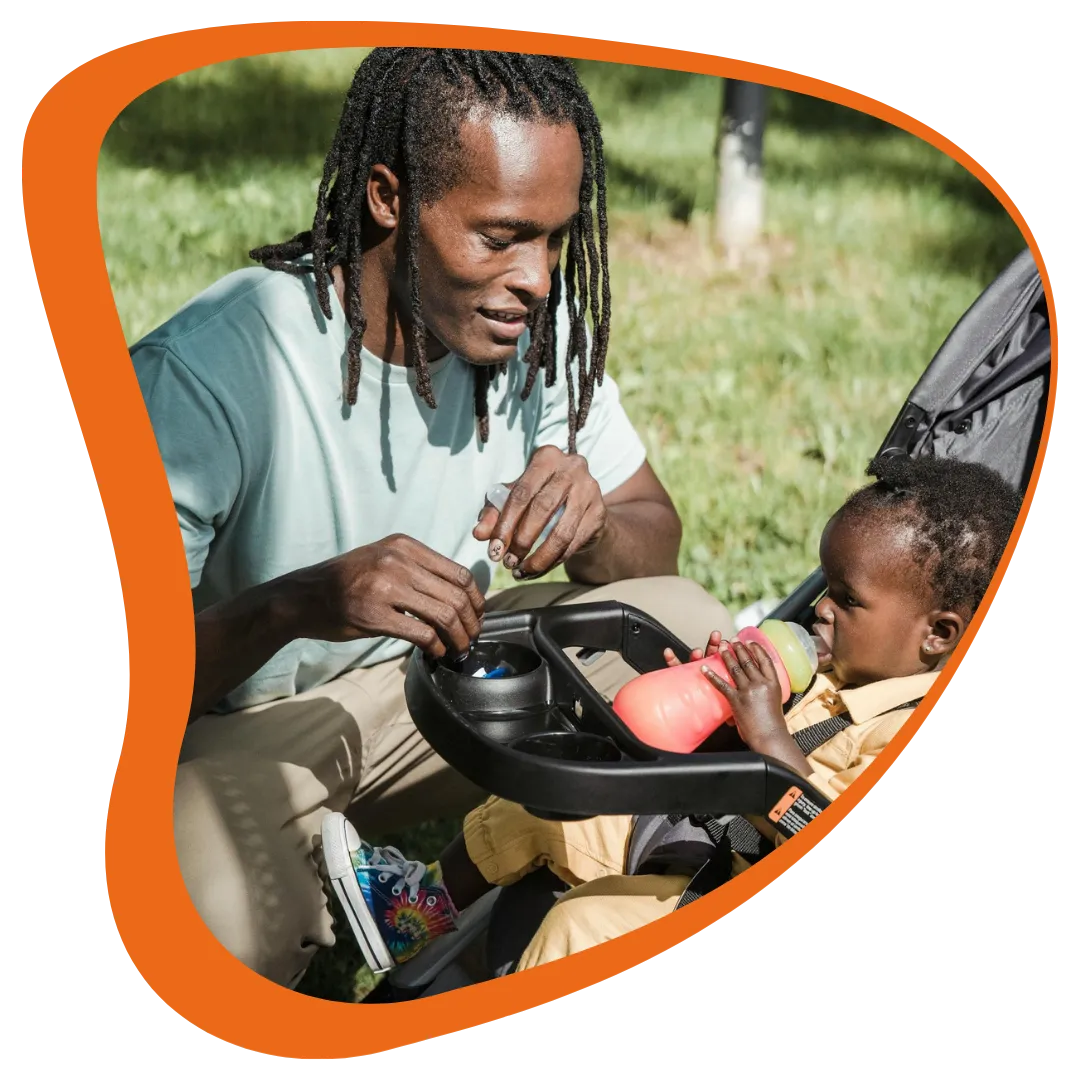Civic Access Collective
Built for real life. Not red tape.
Everyone deserves a way to show up—and get credit for it.
We’re creating simple, structured pathways to help people meet Medicaid work requirements through verified service, digital skills training, structured participation tracking and compliance tools, and community-based contribution.


Civic Access Collective
Built for real life. Not red tape.
Everyone deserves a way to show up—and get credit for it.
We’re creating simple, structured pathways to help people meet Medicaid work requirements through verified service, digital skills training, and community-based contribution.
JOIN THE BOARD OF DIRECTORS

Who We Serve
Civic Access Collective is built for people navigating the realities behind the rules—those facing Medicaid work requirements, managing poverty, reentering after incarceration, living with disability, or caregiving without support.
It’s also for the caseworkers, nonprofits, and agencies searching for real options they can point people to. And it’s for anyone who believes civic participation should be accessible, humane, and rooted in dignity—not bureaucracy.
What We’re Building
Too many people are being asked to “work for their benefits” without access to work that actually counts.
Civic Access Collective helps individuals meet participation requirements—like those tied to Medicaid, SNAP, or other social support programs—through:
Verified volunteer opportunities (online & local)
Free digital skills and job readiness training
Simple tracking tools to prove hours and effort
Tech-lite, funder-ready infrastructure to scale access without burdening users
Human-centered support every step of the way
No busywork. No red tape. Just real ways to contribute, grow, and be seen.
Why It Matters
With federal enforcement expanding by 2026, many individuals risk losing healthcare access simply because they couldn’t meet tracking demands—not because they weren’t participating. CAC fills this gap with scalable, human-first tools that prevent unnecessary coverage loss and reduce caseworker overload.
38+ States & Counting
Thousands of counties preparing for implementation by 2026.
New federal rules allow any state to require work or community participation for certain Medicaid recipients. Enforcement is no longer hypothetical—it’s incoming.
Source: Congressional Budget Office, 2025 federal budget analysis
250K+ Californians at Risk
Adults without dependents are the first in line—often including unhoused individuals, caregivers, and those with unrecognized disabilities.
Projected from CMS and state eligibility data (2025)
Millions Affected. No Clear Path.
Most impacted adults don’t have access to qualifying programs—especially in rural areas or without internet access. As new rules roll out, most people subject to work requirements still don’t know what “counts” or how to track it.
Source: Health Affairs & CBO analysis

Where We’re At
Civic Access Collective is currently in the launch phase. We’re:
Finalizing our nonprofit registration
Building our first set of training modules
Piloting service opportunities with partners
Seeking fiscal sponsorship and early funders
You can help us build this from the ground up.
Starting in California—Built to Scale
We’re beginning in California, where hundreds of thousands of adults could soon be affected by new Medicaid work requirements. Our pilot programs are focused here to align with local agencies, build proof of concept, and serve communities most at risk.
But this issue isn’t just local—it’s national.
As more states adopt similar policies, Civic Access Collective is laying the groundwork to expand across state lines. Our tools, trainings, and tracking system are designed to adapt to each state’s rules—so no matter where someone lives, they can participate with clarity, dignity, and support.
How It Works
Join a training or service track
Choose from job-readiness modules, digital volunteering, or local community projects.
Track your hours
We provide attendance logs, supervisor sign-offs, and completion records.
Get credit for your time
Submit your hours to meet program requirements, apply for jobs, or build your confidence.
Rethinking Civic Contribution: From Compliance to Mutual Investment
Stricter federal work requirements ask people to log hours, but too often those hours don’t build skills or opportunity. What if contribution were framed as mutual investment—where service strengthens both communities and the people who give their time?

Civic Access Collective is in the process of applying for 501(c)(3) status with the IRS.
At this time, donations are not yet tax-deductible.
Once our status is approved, donations may be retroactively eligible for tax deduction if the IRS backdates our exemption to the date of formation (as is common). We’ll notify all donors and issue updated receipts if that happens.
We are committed to full transparency. All contributions will be tracked, reported, and used only for mission-aligned startup expenses.
Want to talk partnership or fiscal sponsorship?
Let’s Build Something That Counts
If you’re ready to support a better way forward—for real people doing their best—you’re in the right place.
Why This Work Matters Now
The Current State of Work Requirements in California
California has historically used statewide waivers to shield Medicaid (Medi-Cal) recipients from federal work requirements. But that protection is temporary. A new federal policy passed in 2025—nicknamed the "Big Beautiful Bill"—now allows all 50 states to enforce work and community participation rules for some Medicaid recipients.
While California currently holds a waiver until January 2026, that window is closing.
Meanwhile, SNAP (CalFresh) recipients have already been impacted:
- Able-Bodied Adults Without Dependents (ABAWDs) must meet work requirements or lose benefits after 3 months
- Acceptable activities include employment, job training, or community service
As state and federal programs shift, thousands of Californians will soon be forced to prove they are "working enough"—regardless of their lived realities.
The Impact of the "Big Beautiful Bill"
This 2025 federal legislation expands and hardens work requirements tied to public benefits.
Key outcomes:
- Medicaid recipients aged 19–55 without dependents are now eligible for work requirement enforcement
- States may withhold or limit coverage if individuals fail to meet compliance thresholds
- New administrative burdens have been created without new support systems
“Work” is narrowly defined—and unpaid caregiving, community organizing, or survival-based labor isn’t counted.
The Hidden Crisis: Who Gets Left Out
1. Unpaid Caregivers
- Caregiving for elders, disabled family, or children doesn’t qualify as "work"
- Many provide full-time care but can’t report hours that count
- They risk losing health coverage despite doing essential labor
2. Formerly Incarcerated Individuals
- Face systemic hiring discrimination
- Often have parole requirements that conflict with training or job placement programs
- Reentry support is sparse, making compliance difficult
3. Disabled or Chronically Ill Adults
- May not be classified as “officially disabled” despite severe barriers
- Lack access to proper documentation or accommodations
4. Marginalized Low-Income Adults
- Lack of transportation, tech access, and childcare make participation nearly impossible
- Fear and confusion around documentation, reporting, and penalties
Why CAC Exists
Civic Access Collective (CAC) is a people-first nonprofit making it easier for individuals to meet public benefit work requirements without punishment, red tape, or shame.
CAC fills the gap by offering:
- Digital job readiness training
- Verified community service opportunities (remote and in-person)
- Time tracking and documentation tools built for compliance
- Human-centered support that meets people where they are
We design our systems for:
- Caregivers who can only work from home
- Reentering citizens who need second chances
- Adults surviving on the edge who deserve dignity, not denial
The Practical Impact
With CAC, participants can:
- Complete hours in ways that fit their life (remote, local, flexible)
- Gain skills that actually support employability and digital access
- Submit verified documentation to caseworkers without confusion or gaps
- Stay eligible for healthcare and food while contributing meaningfully to their communities
Without CAC, people face:
- Losing Medicaid or SNAP due to technicalities, not laziness
- Failing to report hours because there was no system built for them
- Choosing between caregiving and coverage
What We're Building
CAC is starting in California, but this need is national. Our systems are:
- Rooted in community
- Built for dignity
- Designed for expansion to other states post-2026
We aren’t waiting for the system to get kinder. We’re building what people need now.
Want to help? Join us as a founding partner, donor, or volunteer.
Participation Support (Beyond Programs)
Not everyone who needs support will enroll in CAC-led programming—but everyone impacted by new mandates needs a way to track, verify, and prove their participation.
We provide:
- Digital Hour Logs – Track participation from any eligible source
- Supervisor Sign-Off Forms – Collect verification from outside orgs
- Printable & Exportable Records – Ready-to-submit proof for caseworkers
- Weekly Check-in Prompts – Reminders to stay on track
- Document Storage – Secure uploads of timesheets, certificates, and letters
- State-Specific Guidance – Walkthroughs for compliance across locations
This ensures CAC is more than a program provider—we’re a neutral accountability partner for anyone navigating the shifting landscape of benefits eligibility.

